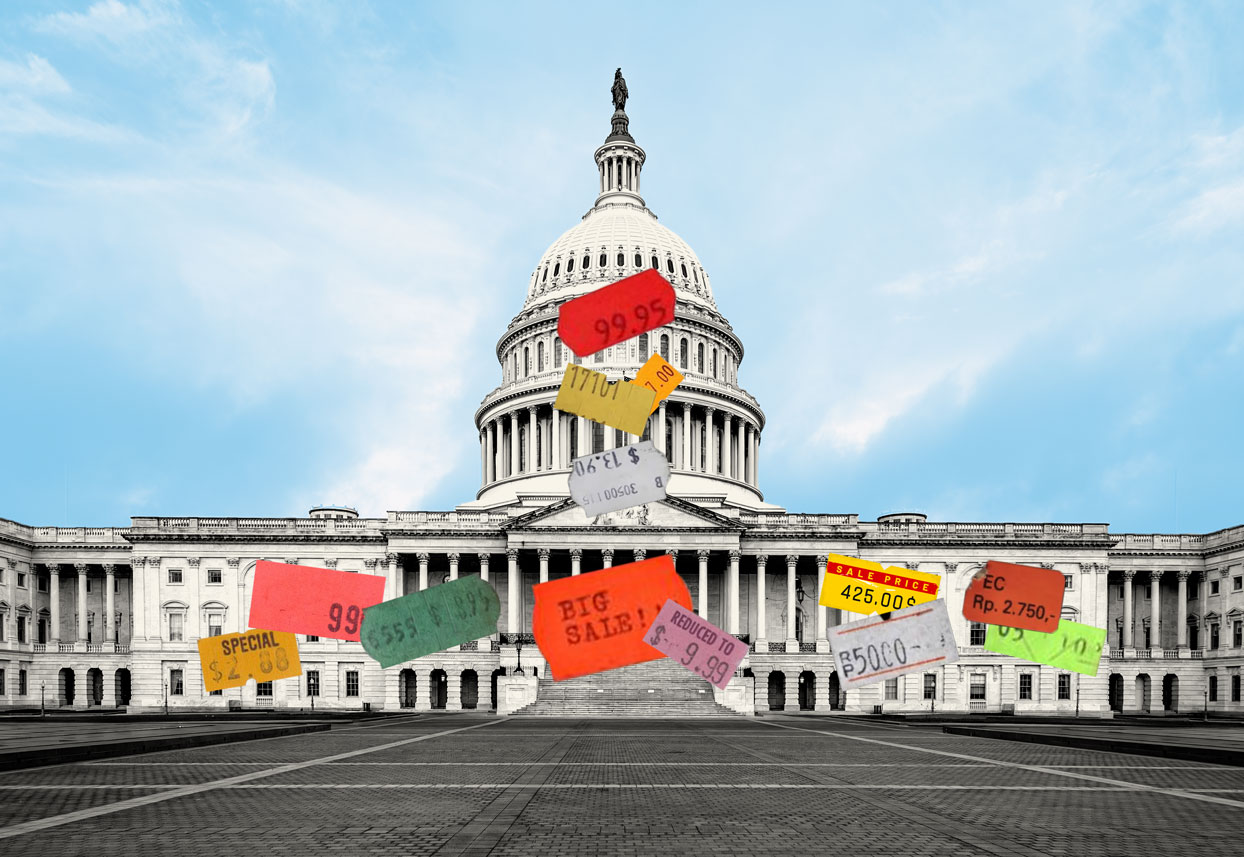Broadcom's blocked Qualcomm bid points to new Trump obstacles
There's a new reality in international dealmaking: Any acquisition with links to China is likely to face obstacles from the Trump administration.
President Donald Trump's decision to block Singapore chipmaker Broadcom (AVGO) from pursuing a hostile takeover of U.S. rival Qualcomm (QCOM) highlights the changed landscape facing foreign buyers of American businesses. It also marks at least the third deal that the Trump administration has blocked by citing national security concerns.
While Broadcom isn't a Chinese company, federal officials were said to be concerned about Qualcomm's development of "5G," a next-generation wireless technology that's expected to bring superfast connections to all types of devices. A Chinese rival, Huawei Technologies, is also working on 5G technology, and federal officials were reportedly concerned that Broadcom would cut back investment in Qualcomm's efforts, allowing Huawei to speed ahead.
In an attempt to ease those worries, Broadcom last week pledged to make the U.S. a leader in the race to build 5G networks, saying it would create a $1.5 billion fund to support the effort if took control of Qualcomm.
Mr. Trump's decision, announced late Monday, abruptly ends Broadcom's four-month, $117 billion bid to buy Qualcomm -- a deal that would have been the largest ever completed in the technology industry.
In recent days, Mr. Trump has imposed tariffs on imported steel and aluminum, which affects China among other nations, and signaled a desire to accelerate the U.S. investigation into intellectual property theft by China, America's biggest trading partner.
The Broadcom decision also comes after the Trump administration previously blocked two other Chinese companies from buying U.S. businesses.
In January, China's Ant Financial scrapped its acquisition of MoneyGram (MGI) after the Committee on Foreign Investment in the United States (CFIUS) refused to approve the deal, citing national security grounds. And in September, CFIUS blocked China's Canyon Bridge Capital Partners' from a proposed $1.3 billion acquisition of the U.S. chipmaker Lattice Semiconductor (LSCC).
CFIUS is emerging as a force in Mr. Trump's protectionist policies, as the committee of top officials also recommended against Broadcom's acquisition of Qualcomm. CFIUS, which reviews foreign purchases of U.S. businesses, comprises members of the State, Defense, Justice, Commerce, Energy and Homeland Security Departments and is led by Treasury Secretary Steven Mnuchin.
"We believe one should assume Team Trump will not permit Chinese investment in U.S. financial firms," wrote Cowen analyst Jaret Seiberg in a January research note after Ant scrapped its purchase of MoneyGram.
In a statement, Broadcom said it "strongly disagrees" that the acquisition raises any national security concerns. Qualcomm did not immediately respond to a request for comment.
Mr. Trump's order gives Broadcom few options other than to drop its bid, said Macquarie Securities analyst Srinivas Pajjuri.
Broadcom faced challenges almost from the start of its quest. Qualcomm quickly spurned its unsolicited suitor and continued to resist even after Broadcom raised its original offer from $103 billion.
Broadcom's Singapore connections complicated matters, even though the company maintained its physical headquarters in Silicon Valley and virtually all of its shareholders are in the U.S.
The Trump administration nevertheless balked at the prospect of a prominent U.S. chipmaker being owned by a foreign company, particularly at a time countries around the world are gearing up to build ultra-fast 5G mobile networks that could tip the balance of power in technology.
Although its name isn't widely known outside the technology industry, Qualcomm is one of the world's leading makers of the processors that power many smartphones and other mobile devices. Qualcomm also owns patents on key pieces of mobile technology that Apple (AAPL) and other manufacturers rely on in their products.
Qualcomm is fending off allegations in complaints filed by Apple and government regulators around the world that it has abused the power of its mobile patents to throttle competition and charge excessive royalties for its technology.
Broadcom CEO Hock Tan had seized on Qualcomm's legal headaches in his attempt to persuade the U.S. government to keep the deal alive. "Qualcomm faces a number of challenges that hamper its role in developing 5G," Tan wrote in a letter sent to U.S. Congress last week. Unlike Qualcomm, Tan said, Broadcom financed its innovation through "lawful practices."
Broadcom also tried to curry favor by moving its legal headquarters from Singapore to the U.S within the next few weeks. Singapore became Broadcom's legal home two years ago after it was sold to Avago, a company that once was part of Silicon Valley pioneer Hewlett-Packard.
Mr. Trump hosted Broadcom's Tan in the White House last year when the executive announced the proposed move.
Now that Broadcom has been shoved aside, Qualcomm will be under pressure to prevent its stock price from sinking while trying to complete its own proposed takeover -- a proposed $43 billion purchase of NXP Semiconductors (NXPI).
"Now it's on [Qualcomm's] management to deliver on what they promised," Macquarie's Pajjuri said.



